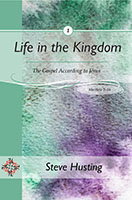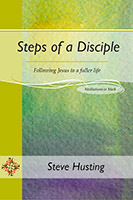Living with the end in view involves
Obeying the Lord
Not everyone who says to Me, “Lord, Lord,” shall enter the kingdom of heaven, but he who does the will of My Father in heaven. Many will say to Me in that day, “Lord, Lord, have we not prophesied in Your name, cast out demons in Your name, and done many wonders in Your name?”
And then I will declare to them, “I never knew you; depart from Me, you who practice lawlessness!” (Matt. 7:21–23)
How easy it is for many of us to apply the label, “Yes, I’m a Christian.” It is harder for us to say, “Yes, I do the will of our Father in heaven.” It’s easier to say, “I’m born again” than to say, “I hunger and thirst for righteousness” (Matt. 5:6). Those in the verse above whom Christ does not know may have taken up the name of Christian without attempting to be members of His intimate followers. Are we terrified to join the “inner circle” of those who have laid down their lives in obedience to a heavenly will?
How does Jesus define a people whom He does not know? As unbelievers? Not born again? Who had never heard the Gospel preached to them? Jesus in the next few verses gives His own explanation of how those He did not know differed from those He acknowledges:
Therefore whoever hears these sayings of Mine, and does them, I will liken him to a wise man who built his house on the rock: and the rain descended, the floods came, and the winds blew and beat on that house; and it did not fall, for it was founded on the rock. (Matt. 7:24–25)
What is your approach to the Word of God? God is love, and He desires a relationship with His people who do “the will of My Father in heaven.” The Lord is not interested in titles, but relationships. To a person in one group Jesus will say, “I never knew you” (7:23). To a person in a different group He will say, “Well done, good and faithful servant” (Matt. 25:21). Both groups will claim good works, but one works on the basis of obedience.
Do you say Jesus is Lord without counting yourself among those who hear “these sayings and does them”? Let not the “rain,” “floods” and “winds” of your trials pry you away from the Scriptures, and keep you from obeying what you read!
Living with the end in view means following the Word in loving obedience.
Steps of faith:
Respond to the Word—to pray, rejoice, humble self, worship, act, speak.
Break out of dull spiritual habits to hear His voice again.
–Steve Husting
Selection from Living with the End in View, Book 1, Steve Husting






